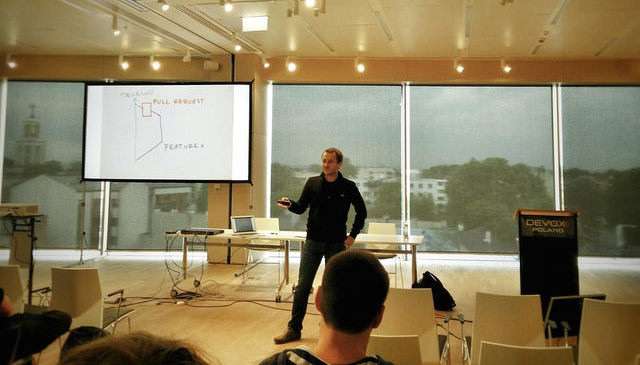Finally a Revolutionary Redesign for the Ironing Board - What a Time-Saver!
This rotating ironing board is the first redesign since its creation in 1892 - and its modifications cut ironing time by 75%.

Do you get queasy when you think about getting on a stage? Do you have trouble getting through a speech without stuttering? Well, now there's an app for that.
Two college students from Drexel University have created an app called Orai – and it's designed to help people improve their public speaking skills.
Two college students from Drexel University have created an app called Orai – and it's designed to help people improve their public speaking skills.
There is a large nunber of people who can benefit from such coaching. The app's website claims: "Studies show that people are more afraid of public speaking than death. In fact, about 75% of people in the world admit that they are afraid of public speaking."
One of the app's creators, 22-year-old mechanical engineering student Danish Dhamani, suffered from speech anxiety because of his thick Eastern accent. Since Dhamani was born in Pakistan before being raised in Tanzania and moving to the United States, he was self-conscious about speaking in front of his class. That's when he got the idea to create Orai.
CHECK OUT: 10-Year-old Boy Invents Device That Will Save Children From Hot Cars
Since Dhamani and his friend Paritosh Gupta first started pitching Orai during business competitions, they have been awarded over $40,000 in prize money – which has gone towards the app's financing.
While the app is still being revised and improved upon, it has already been downloaded by over 35,000 people. Dhamani and Gupta caution that Orai's early design will not contain all the features, or benefit from feedback, like later versions will.
For amateur public speakers, however, it's a good start.
"It forces people to ask themselves, ‘What am I doing verbally?' and then that hopefully leads them to the next question: ‘How can I make it better?'" adjunct communications professor Michael Wissot told NBC News.
Click To Share the Benefits (Photo by Astro_Matt, CC)
Be the first to comment